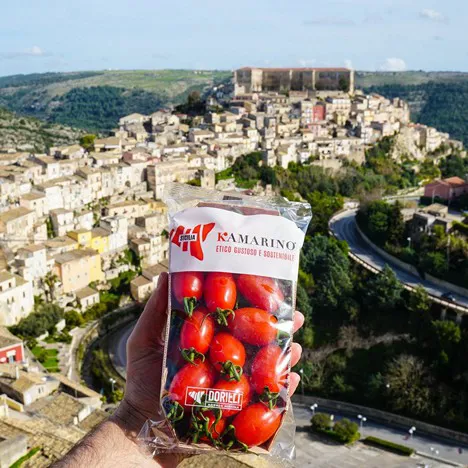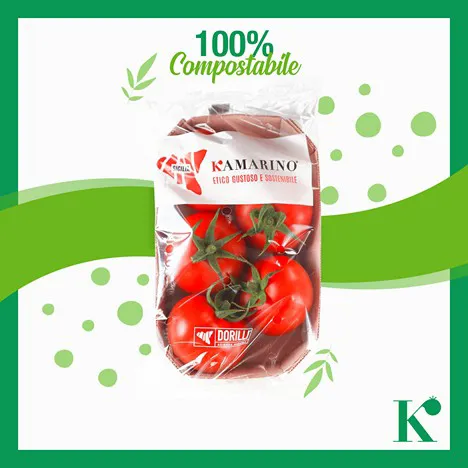"For more than 10 days now, the situation in the vegetable market has been very heavy, especially for basic products, which are struggling to be sold, although there were some signs of recovery between Saturday and Monday. However, those who produce high-quality products in line with the requirements of the large-scale retail trade continue to find a viable market outlet," said Guido Grasso, manager of the Dorilli farm, speaking on the commercial and production situation of Sicilian tomatoes.

"As of November 2020, the price gap between commodity and premium product has widened even in the local market. However, whenever there is high supply at low prices confusion prevails. Standard products are easily sold as premium products, in pursuit of easy profits. We are aware of this, and it is certainly causing difficulties in our market at the moment.

In order to overcome this situation, the Dorilli company has embarked on a process of diversification, with a special 'Rosso da insalata' and a 'Mini Sammarzano', both sold under the 'Kamarino' brand, given the very particular flavour of these products. The company focuses on taste in traditional tomatoes, "rather than chasing new sizes or colours from seed companies". In addition, 'Kamarino' comes in a 100% compostable packaging made of eco-friendly paper, PLA plastic, glue, natural dyes.
Varietal innovation in times of the TOBRFV virus is a tricky card to play. We prefer to continue to focus on well-known cultivars, which also prove to be functional in limiting the virus. Starting next year, the Tomato Brown Rugose Fruit Virus will heavily influence the varietal choices of many farms, and it is crucial to have healthy propagation material, by trying to combine a number of elements that will slow down the evolution of the disease," continued Guido Grasso.

“The virus that attacks tomatoes is now present everywhere, more than you might think. We have detected it even in apparently healthy crops, so that under certain conditions the virus is completely asymptomatic. The idea we have gained from this disease, which persists even in dust and spreads rapidly, is that we will have to live with it in the coming years. We have to learn to manage it in the best possible way. From our experience in the field, and with the help of laboratory tests, we have found that there is a higher incidence of adverse effects where TBRFV coexists and combines with Pepino mosaic virus (PepMV),” added Grasso.
So far we have learned that prophylaxis alone is not of much help, although it is an important aspect. In our experience, it is necessary to combine prevention with targeted agronomic management, for example by reinvigorating the plant through the use of varieties that are less susceptible to TOBRFV and/or grafted plants and by changing the transplanting dates. In short, by acting on all those parameters that can help strengthen the vigor of the plant," concluded Guido Grasso.
Contact:
Azienda Agricola Dorilli ![]()
Contrada Dorilli, S.n.
97011 Acate (RG) - Italy
Phone.: +39 0932 914011
Email: info@kamarino.it
Website: www.dorilli.eu
